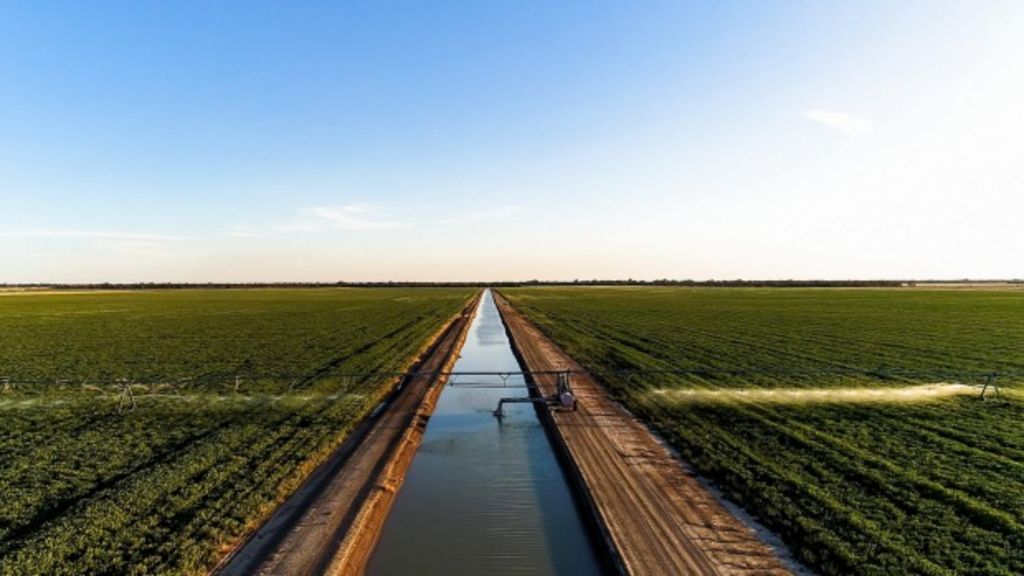
After 153 years, Landale family sell Blackwood Park for $9m
A major cotton grower from Narrabri in north-west NSW has paid more than $9 million to acquire Blackwood Park, a historic rural holding near Deniliquin, from the Landale family which has owned it for over 150 years.
The price paid was double the initial $4.5 million expectations of the vendor, Robert Landale, but included the acquisition of extensive irrigation water rights, which added significant value to the sale.
Mr Landale put the 3416-hectare cropping property up for sale in November after deciding to retire and because there was no family succession plan – a common problem for many of Australia’s old farming families.
Located only one kilometre east of Conargo township, the larger southern portion has been held by five generations of the Landale family dating back to 1864, when Mr Landale’s predecessor (also called Robert Landale) purchased what was then called Mundiwa – part of the original Deniliquin Station – from James Tyson. Here he successfully bred Border Leicester stud sheep.
The 1100-hectare northern portion was purchased by the family during the 1960s, having been part of the original Quiamong cattle station.
“At the closing of the expressions of interest we had seven parties willing to purchase Blackwood Park and the successful purchaser is an established cotton grower with a major holding at Narrabri in NSW,” said selling agent Matt Childs of Pat Rice & Hawkins. “My understanding is that with some further development this important southern Riverina district holding will be converted to cotton production” Mr Childs said.
Mr Childs declined to reveal the identity of the buyer.
Last year, the renowned cotton property “Koramba” on the NSW-Queensland border sold for more than $100 million to farming operator Australian Food and Fibre while in late 2016, ASX-listed Rural Funds Group bought Queensland cotton farm Lynora Downs for $26.5 million.
The sale of Blackwood Park for conversion to cotton growing reflects the spread of cotton growing south into NSW’s Riverina.
Production of cotton has ramped up in Australia with the number of bales rising to 3.8 million in 2016-17 from 2.7 million and the area of land planted to cotton increased 80 per cent to 473,000 hectares over that time, according to Cotton Australia.
A large proportion of cotton is exported to countries like China, Indonesia, South Korea and Japan.
However, cotton, like almonds, is highly reliant on irrigated water, making the sector vulnerable to drought and rising water prices as well as political stoushes, as is occurring currently in the Federal parliament over the next stage of the Murray Darling Basin irrigation plan.
Globally, the outlook for cotton is bullish with hedge fund managers taking a positive long-term view on the sector, according to a recent report by Bloomberg. In addition, cotton and wheat contracts were the only components of the Bloomberg Agriculture Subindex to post gains last year.











